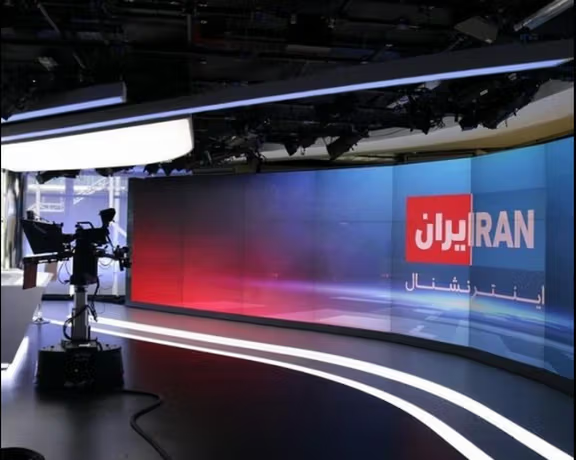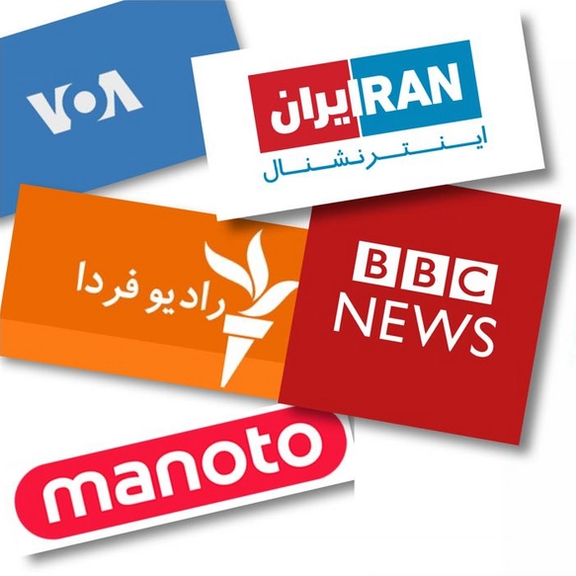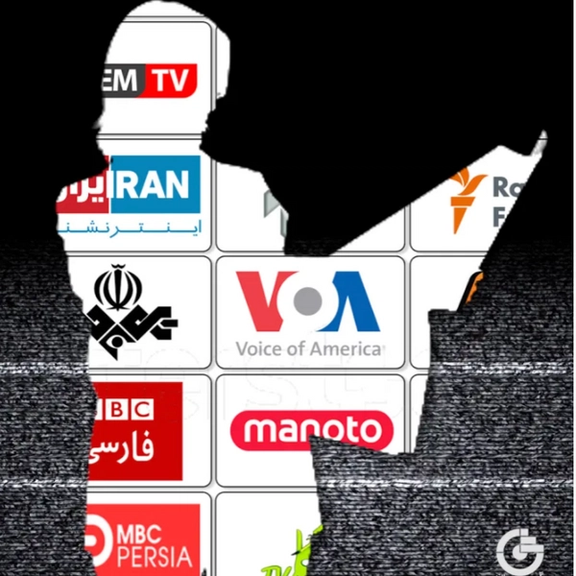Iranians Trust Foreign-Based Media For News On Iran - Survey

A recent opinion survey has shown that the majority of Iranians follow news from foreign-based media outlets, with Iran International being their top choice.

A recent opinion survey has shown that the majority of Iranians follow news from foreign-based media outlets, with Iran International being their top choice.
The survey by the Netherlands-based Gamaan institute collected information from 38,445 people inside Iran about their views on media, revealing that only about 21 percent of the respondents followed the developments about Iran from the state-run Islamic Republic of Iran Broadcasting (IRIB).
This 10-day online survey titled "Iranians' Attitudes Towards Media in 1402 Persian Calendar Year” (started March 21), targeted literate individuals aged 19 and above, a sample from 90% of the country's adult population. GAMAAN, the Group for Analyzing and Measuring Attitudes in Iran, is an independent, non-profit research foundation, focused on Iranians’ attitudes towards social and political topics.
The survey explored key indicators such as the "most popular channel," the "most trustworthy channel according to the audience," and the "primary source for following news of protests in Mahsa's movement." The results indicate that more than half of the respondents consider Iran International as their primary source of information and news about Iran.
Iran International leads the pack with 54% cited as "often" or "sometimes" following the media outlet. Manoto TV garnered 42%, BBC Persian" 37%, IRIB 36%, and Voice of America Persian 34%. Additionally, about 32% claim to occasionally or more frequently watch Jam-e-Jam (the international bundle of IRIB channels) and 30% tune into MBC Persia. On the other hand, 48% of the population have stated that they never watch or listen to programs on the state broadcaster.

When asked, "Which media outlets did you primarily follow for news about recent protests in Iran?" 57% indicated they followed news from Iran International, 30% from Manoto, 26% from BBC Persian, and 20% from Voice of America. Approximately 19% also received news about the protests from the IRIB, the state broadcaster tightly reflecting the views of the regime's hardliners.
In response to a question regarding the level of trust in media outlets, 50% express "a great deal" or "some" confidence in Iran International, 44% in Manoto, 42% in Voice of America, 40% in Radio Farda, and 34% in BBC Persian. On the other hand, only about 21% of the population trust state-run IRIB, while 59% have stated that they have "no trust at all" in the regime’s broadcaster.
According to the results of this survey, 68% of the population "often" use social media networks for obtaining information and news about Iran and the world, while 35% are viewers of satellite channels, 12% rely on state broadcaster IRIB, and 8% tune into foreign radio for the news.
Among social media platforms, approximately 65% of the population "often" use Instagram, 46% use WhatsApp, 43% use Telegram, 17% use YouTube, 8% use domestic app Rubika, 8% use Twitter, 5% use Facebook, 3% use state-run platform Soroush, and 2% use Clubhouse for their online activities. All international social media platforms are blocked Iran, with people using VPNs to circumvent the censorship.

IRIB is tightly controlled by the office of Iran’s authoritarian ruler Ali Khamenei and has been losing its audience with its heavy religious programming and heavily censored news and biased programs. Critics say it is nothing but a propaganda tool with a hefty government subsidy of at least $600 million and no accountability.
In June, the regime took one more step to tighten its control over entertainment content in line with its policy of enforcing religious restrictions on the population, gaining full control over content shown by privately-owned streaming services based on a decision taken by Iran's Supreme Cultural Revolution Council.
Streaming services such as Filimo, an online video on demand (VOD) service like Netflix, have gained great popularity in Iran where there are no privately-owned television networks. These services provided an opportunity for independent and sometimes dissident filmmakers and artists to showcase their work. The head of the state broadcaster (IRIB), hardliner Payman Jebelli, in a letter to President Ebrahim Raisi in January demanded that Filimo be blocked on the internet.
Earlier this year, NGO Reporters Sans Frontiers, ranked Iran 177/180 nations for press freedom, citing the arrest of 70 Iranian journalists since the death of Mahsa Amini as one example of the regime's crackdown on voices of dissent. Iran International's reporters were threatened earlier this year by IRGC and intelligence (MOIS) agents, forcing some to relocate from London to Washington amidst security threats. Iranian journalists abroad have also been deluged with threats to their lives.
This year's Freedom House report on global freedoms also ranked Iran 12th in the 100 least free countries in the world.